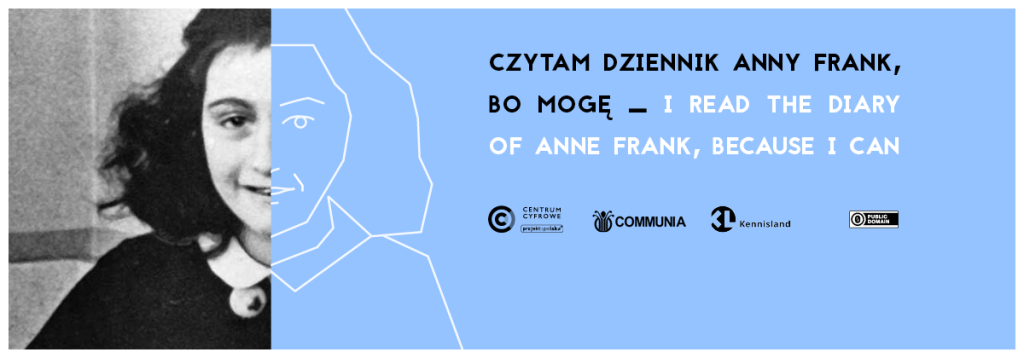 April 26 is World Intellectual Property Day—an opportunity to highlight and learn more about IP issues around the world. This year, a group of Polish and European organizations has provided a sobering example of what can go wrong with overlong, complicated, and internationally inconsistent copyright terms.
April 26 is World Intellectual Property Day—an opportunity to highlight and learn more about IP issues around the world. This year, a group of Polish and European organizations has provided a sobering example of what can go wrong with overlong, complicated, and internationally inconsistent copyright terms.
To call attention to these issues, Centrum Cyfrowe, in Poland, has published The Diary of Anne Frank online—but most would-be readers won’t be able to actually see it. Due to a quirk of copyright law, the original manuscripts of the diary are in the public domain in Poland, but not in the much of the EU or the United States. That means that the text of the Diary will be visible to readers within Poland only, and will be geo-blocked throughout the rest of the world. CC Poland’s project website provides a succinct explanation of this strange state of affairs.
Authors Alliance wrote an analysis of the unfortunate status of this beloved book late last year, when it appeared that the Diary might come into the public domain in parts of Europe on January 1, 2016. However, even within Europe copyright terms are set by a confusing patchwork of inconsistent national laws. According to CC Poland’s analysis, the Diary will finally be released into the public domain in 2037 (in the Netherlands) and 2042 (in the US). Other countries, such as France, Spain, and the UK, all have their own term lengths.
When copyright terms are overly long and conflict with one another, as in the case of The Diary of Anne Frank, public access to culture and knowledge is unnecessarily curtailed. Europe would benefit from consistent, reasonable laws across borders. In the words of CC Poland, “if we want to fully unlock the potential of our rich cultural heritage we need clear rules that allow anyone to determine whether a work is still protected by copyright.” For public-minded authors, having their works eventually enter the public domain, where they might be shared and stewarded by communities across national borders and languages, is a safeguard for their legacies. Access to works of global importance should not be arbitrary. World Intellectual Property Day reminds us that we can do better.
